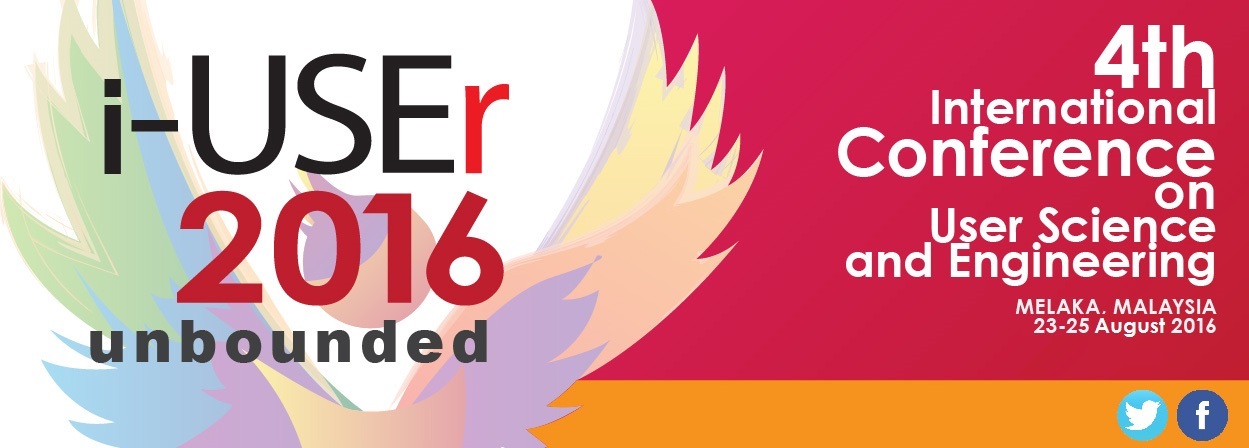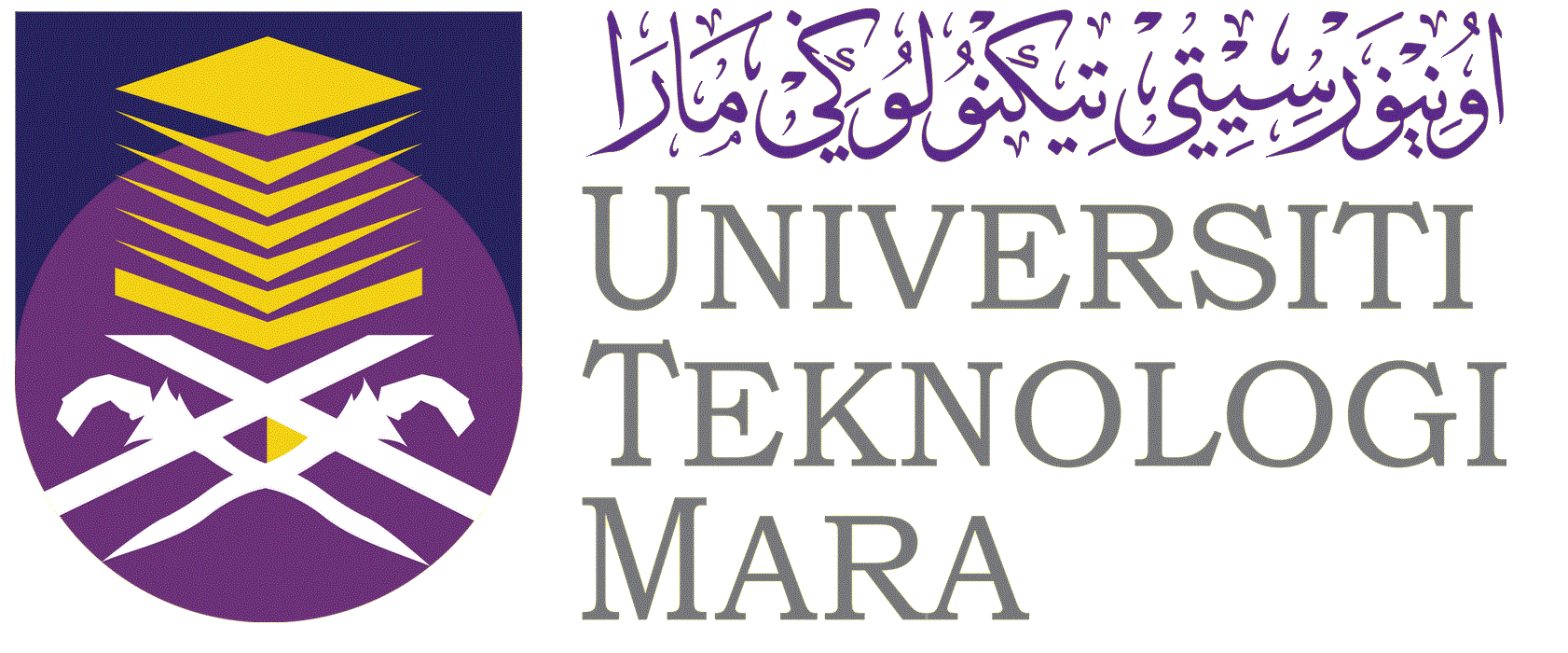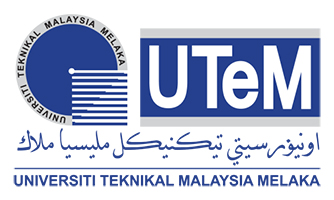Call For Papers.
Main tracks have been identified (see below). However innovative contributes that don't fit into these areas will also be considered since they might be of benefit to the conference attendees. Acceptance will be based primarily on originality, significance and quality of contribution.
HCI and Usability - Human-Computer Interaction (HCI) is a multidisciplinary track that attracts a wide array of diverse research fields. This year's conference theme is "unbounded", and the track welcomes papers from theoretical, generic and applied areas from both within and outside HCI. This track welcomes researchers and practitioners to share relevant empirical findings, conceptual/theoretical framework, new methodologies/models, techniques and tools in HCI that may trigger fresh perspectives and direction we should evolve at an individual, group, organization, or society levels, transcending from both creative and innovative ideas for supporting current and new phenomena in the digital and non-digital environment.
User Experience - The use of IT artefacts is no longer simply about "what looks good" and "error counting" but rather "what makes the IT artefact desirable" without the expense of usefulness and usability. This track is looking for papers by technological architects and visionaries that advance our knowledge in the design and metrics of user experience through practical approaches and research methods. The focus is on the creative architecting of user experience conversion and performance with social impact high in consideration. This track looks for applications in various domains which include but not limited to industrial design, ubiquitous computing, education, government, healthcare, sustainability and many other widely used and unconventional technologies that drive the future.
HCI and IT Infrastructure - This track is related to addressing issues in the domain of soft infrastructure and human-computer interaction which share a common interest in ensuring that users have a pleasant interaction. They include design, architecture, deployment, and evaluation of systems and infrastructures that support development of interaction with devices or services. Due to the impact of infrastructure on the user experience, the issues related to development of software infrastructures concerning organizational resources, supports and culture leading to positive user experiences are highly anticipated.
HCI and e-services - The role of technologies is facilitating delivery of services and bridging the gaps between service providers and consumers in various domains such as e-learning, e-government, e-health, e-commerce etc. This track welcomes papers that discuss the means of encouraging participation and building bridges between industrial, researchers, and practitioners, members of existing associations, academia, standardisation bodies, and government agencies. Topics of Interest include Principles and Practices, Recent Developments in using Digital Technologies in Learning, ecommerce, government and health management, User Experience and Aesthetics, Usability, Feel and Touch, Design and Evaluation, Interface design, Integration, Accessibility Issues and Benefits, Usability Constraints, Usability Improvements, Usability Issues and Interaction.
HCI and Urban Science - Urban science emerged from research that promote and cultivate people who will create orderly, effective urban environments befitting a mature society by scientifically exploring the relationship between human activities and the spatial and social environments HCI and Urban Science of cities. With the proliferation of the media and ubiquitous technology in the urban space and social interaction, there is a growing interest in looking at new models of interaction in the urban space. This track offers opportunities for researchers and practitioners to present the research work and findings on the new perspectives and technical solution for the relation between public life and urban space and the interaction design.
Human-Centered Computing - Human Centered Computing (HCC) is an emerging field that aims at bridging the gaps between multidisciplinary areas with the design and implementation of computing systems that support human activities. Adherence to make computers to "think ahead" beyond boundaries and be responsive in their interactions with human, HCC is particularly targeted to produce robust, scalable and flexible in both computational and interactive tools development (e.g. the use of social media, mobile platform, and big data) for supporting creativity, safety and to enhance user experience in modern society. With the "unbounded" technology experience, this track welcomes papers that discuss existing and emerging issues on the theoretical, conceptual, design, analysis and evaluation, development, deployment and access in different platform, media and technology within HCC context.
HCI for the underserved (which includes the disabled, elderly and indigenous) - Research in HCI recognized various group of users or population have been provided with inadequate services - they were underserved. This track accepts papers that report new understanding and findings, new methodology and new technological or human interface solutions for the underserved that will improve their wellbeing and quality of life. This included research that involved group of people with disabilities, elderly, indigenous, low income community/poverty, people who live in a remote geographical area, extreme climate victims e.g. flood, drought, special health condition, single parents, orphanage or any specific society or community in disparity and need special attention.
Human Interface and Management of Information (HI & MI) - Human Interface and Management of Information have the potential to enable humans to better manage their lives through the use of synergistic human-computer empowered information systems. They focus on research and development of technologies for mapping human knowledge into computing systems and back, all for the purpose of human understanding, analysis, and use. This track accepts research related to data, information, and associated processes used to meet the mission goals of the HI & IM which covers the making of the data, information, and output of those processes usable by and useful to humans with diverse requirements and capabilities. It may also include Government approaches for the development and use of integrated on-line information technologies to achieve benefits such as Changing the way scientific research is conducted, Expanding the science and engineering knowledge base, Enabling a more knowledgeable, capable, and productive workforce.
HCI and Analytics - Discovering and communicating as well as visualizing meaningful patterns in data from a variety of sources and forms, to gain valuable insights is being emphasized in HCI studies to ensure for a better human-centered design solutions and recommendations. As such the use and adoption of analytics, the scientific process and practice of measuring, analyzing, visualizing and interpreting interactions and associations of user experience, actions, behavior, emotions and decisions, are important in HCI methodology to communicate and understand informed insights. This track seeks research papers, covering a wide range of topics related to analytics including methods, techniques and approaches in HCI in the context of individual, community and organization.
HCI and Domestic Technologies - Since the 1990s, the HCI community has increasingly focused on understanding the complex and evolving ways interactive technologies are situated within the domestic life and their implications for domestic experience. Domestic technologies can provide a rich, complex, nuanced, and multifaceted setting for everyday lif. This track welcomes contributions that discuss on methodologies to understand the social life and practices in the domestic setting, the design of future domestic technologies using cultural and/or technology probes, field studies and prototype deployments that involve testing a new technological artefact or prototype in a real setting with participants in their home, and smart home or smart city experiments.
Download i-USEr 2016 Poster Here
Download i-USEr 2016 Brochure Here
|






